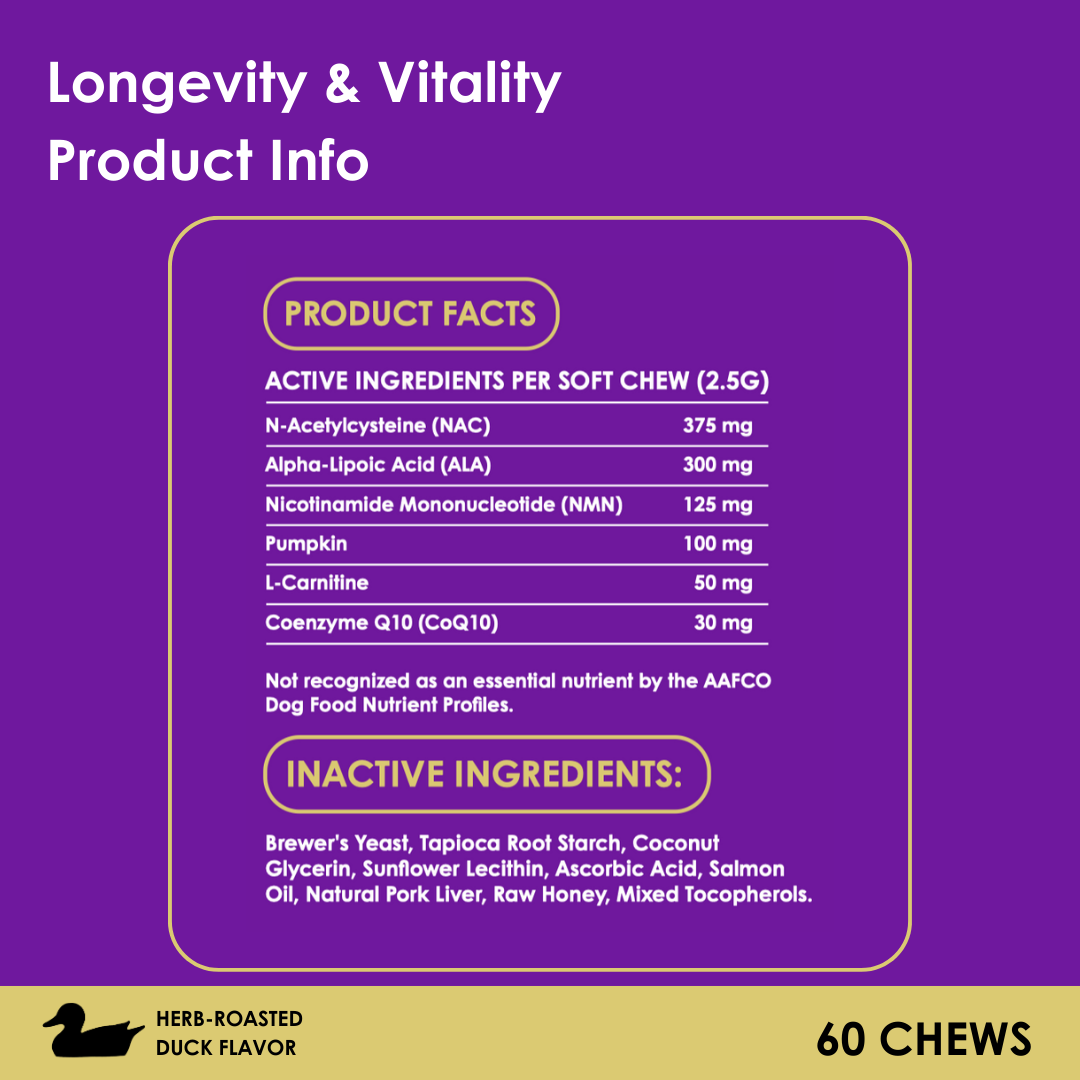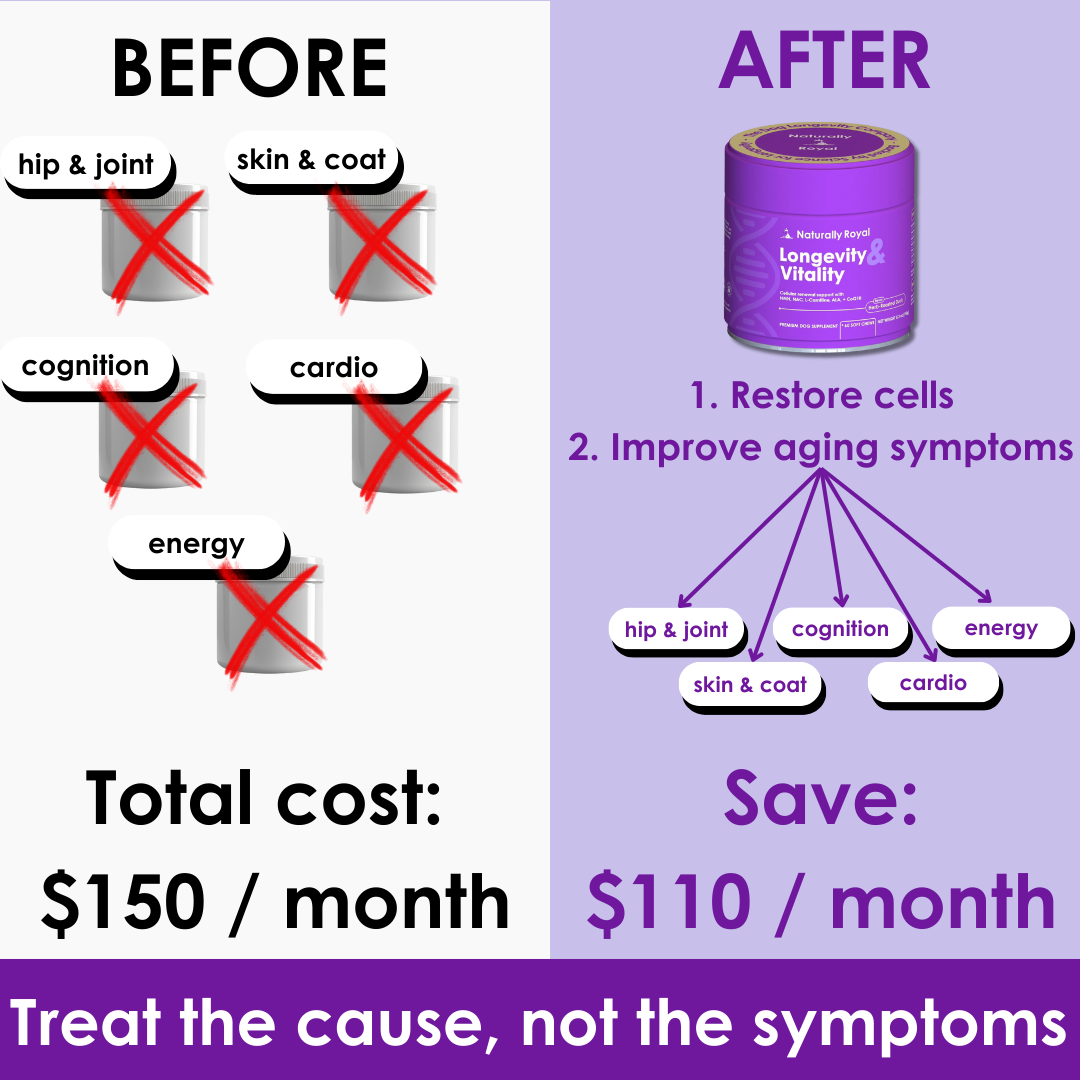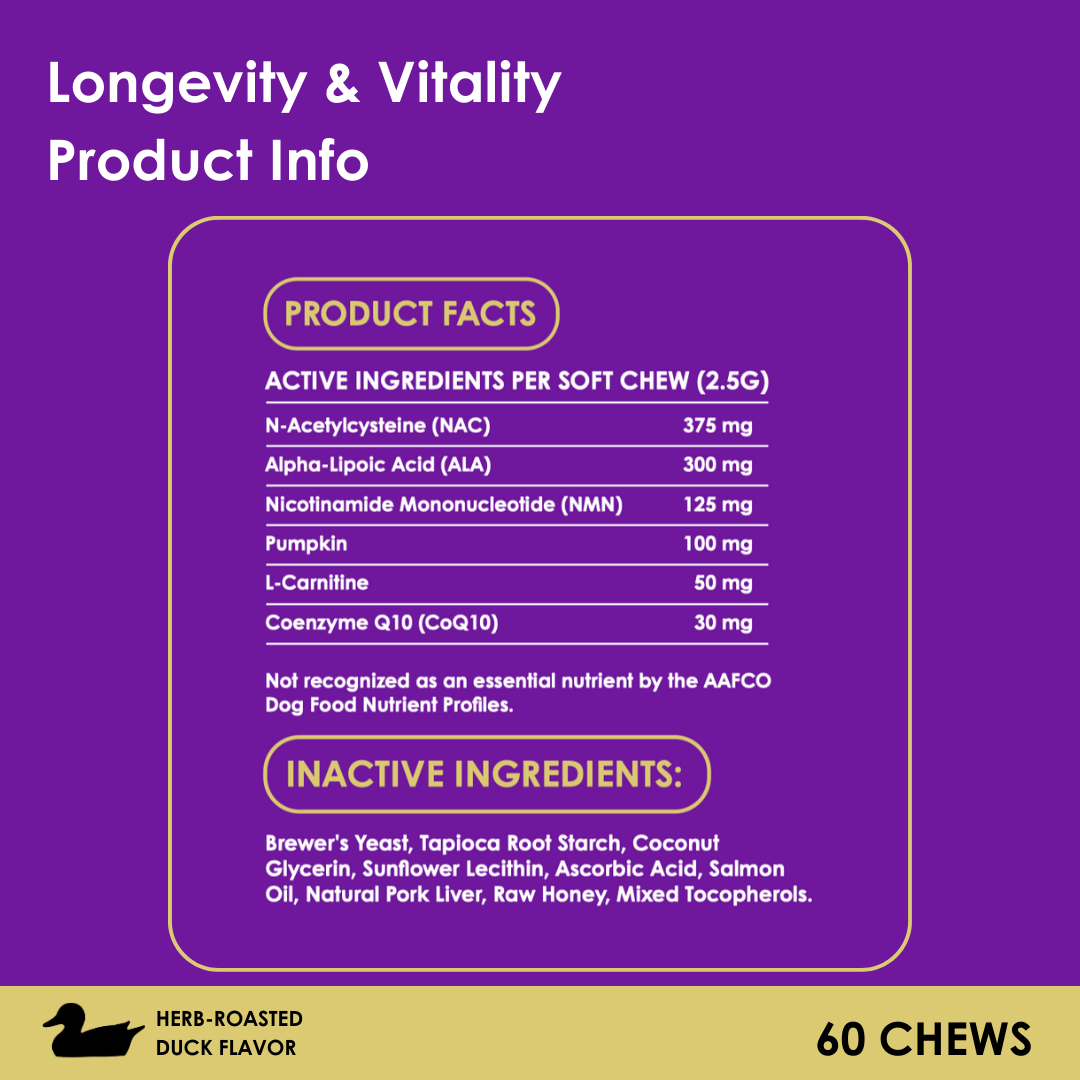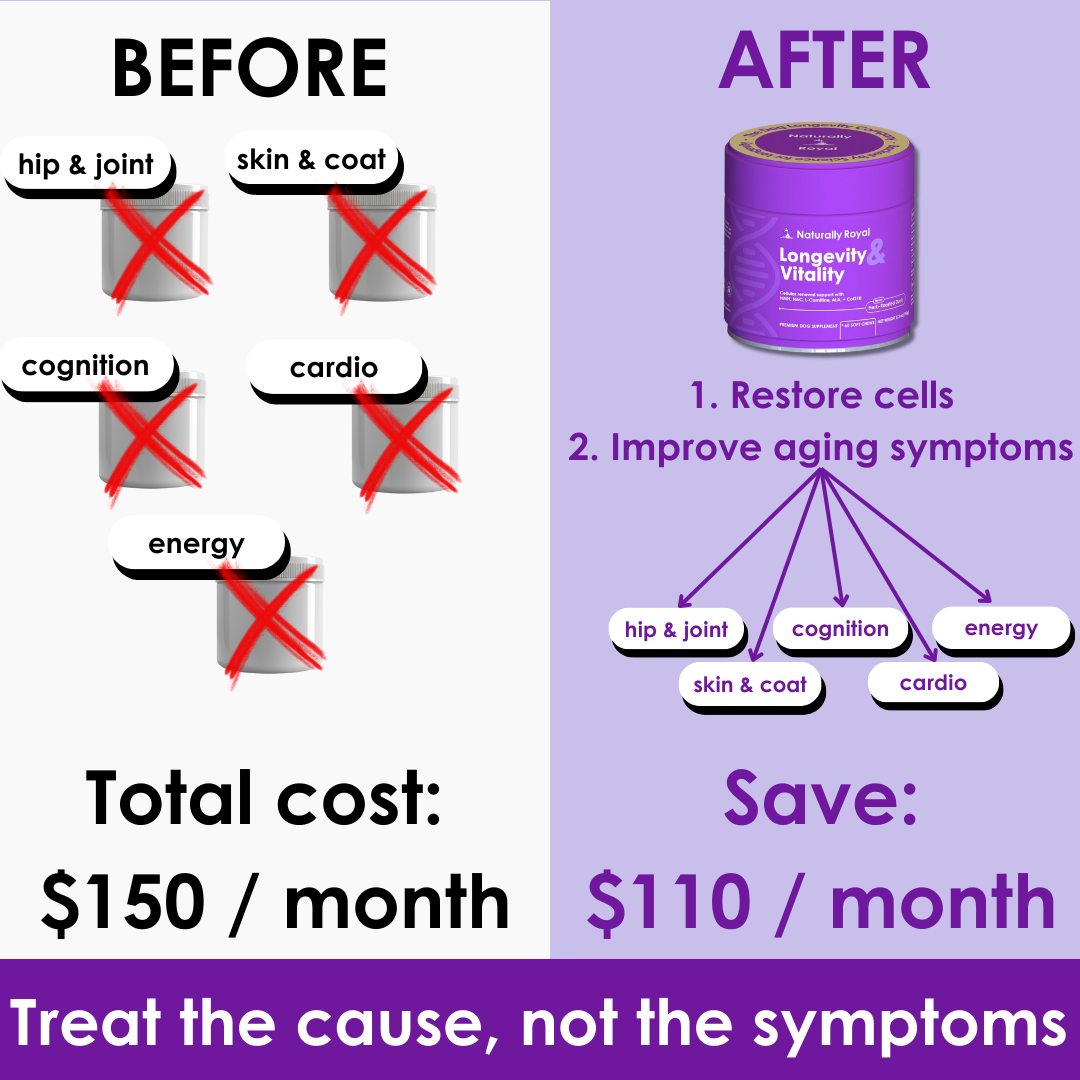Allergy Medication Dangers and Their Longevity Impact
As dog parents, we often turn to common over-the-counter (OTC) medications, like allergy pills, to help our dogs find relief from symptoms like itching and sneezing. However, these medications, particularly those containing diphenhydramine (the active ingredient in Benadryl), pose significant risks to our dogs' health and longevity. While small, carefully measured doses may be safe under veterinary supervision, there are potential dangers that every dog parent should be aware of. Let's get into them:
The Risks of Diphenhydramine for Dogs
Diphenhydramine is widely used in humans to relieve allergy symptoms, but when given to dogs, especially in incorrect dosages, it can lead to severe and potentially fatal side effects.
The symptoms of diphenhydramine overdose in dogs can include:
- Agitation or Lethargy: Dogs may either become excessively restless or extremely sluggish.
- Abnormal Heart Rate and Blood Pressure: High doses can lead to dangerous changes in heart rate and blood pressure, increasing the risk of heart complications.
- Gastrointestinal Issues: Vomiting, diarrhea, and loss of appetite can occur, causing further health deterioration.
- Neurological Effects: In severe cases, dogs may experience tremors, seizures, and even respiratory depression, which can be life-threatening.
Long-Term Health Impacts:
While some dogs may recover from accidental ingestion of these medications with prompt veterinary care, the long-term health impacts can still be profound. Continuous exposure, even at low levels, may contribute to chronic health conditions. For example:
- Organ Damage: Repeated exposure to diphenhydramine can strain the liver and kidneys, leading to potential organ damage over time.
- Immune System Complications: There have been instances where dogs, after exposure to such medications, developed conditions like immune-mediated thrombocytopenia (IMTP), where the immune system attacks the body’s own cells. This condition can severely impact the dog’s longevity if not managed properly.
Safe Alternatives and Precautions:
To avoid the risks associated with human allergy medications, it’s crucial to consult your veterinarian before giving your dog any OTC drugs.
Safer alternatives may include:
- Veterinarian-Prescribed Allergy Medications: These are specifically formulated for dogs and take into account their unique metabolic processes.
- Natural Remedies: In some cases, natural supplements or environmental changes may alleviate allergy symptoms without the risks associated with medications.
Conclusion
While medications like diphenhydramine can provide quick relief for allergic symptoms, they come with significant risks that could impact your dog’s health and longevity. Always consult with your veterinarian for safe alternatives and ensure that all medications are stored securely out of your pet’s reach. By taking these precautions, you can help ensure your dog enjoys a long, healthy life free from preventable health issues.
























